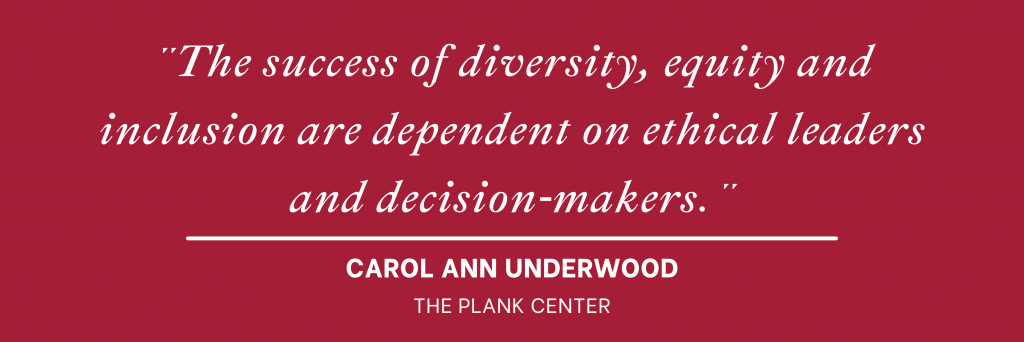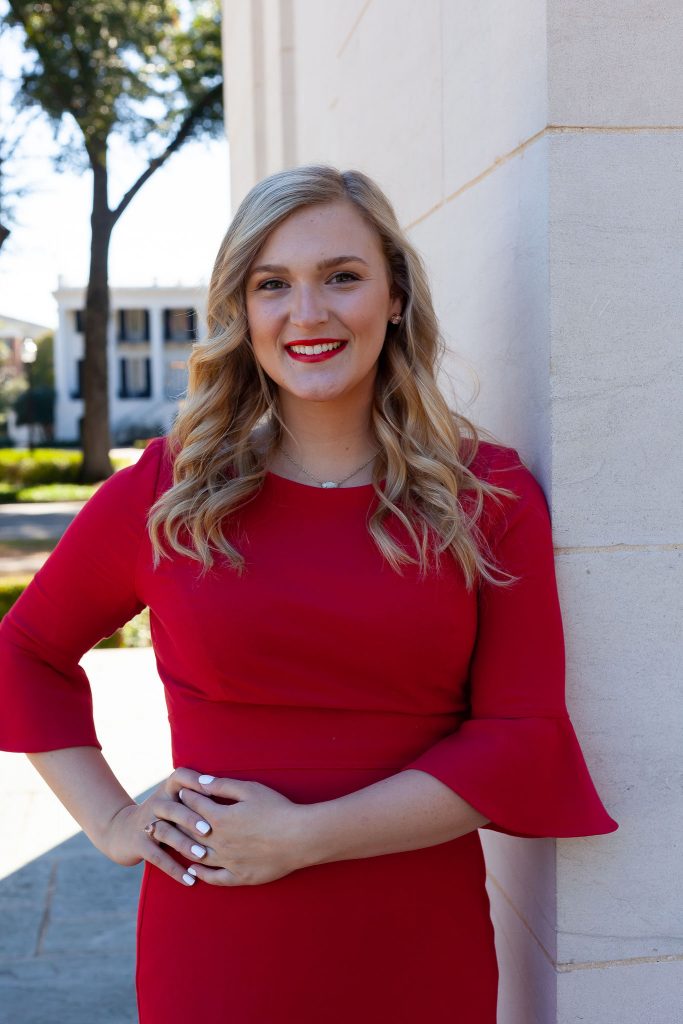By: Carol Ann Underwood | September 2020
We expect many things from leaders in our organizations. We look to them for solutions when times are challenging, and we expect them to do what is right. We trust them to make ethical decisions daily and hope their moral compass points due north. There are numerous topics we need them to address in the workplace, and one of the most important issues today are efforts to support diversity, equity and inclusion. The success of diversity, equity and inclusion is dependent on ethical leaders and decision-makers.

It’s Not A Trend, It’s What’s Right
Diversity, equity and inclusion (DEI) aren’t buzzwords to throw into a conversation; they aren’t words to only use during annual company training, and their meanings are not unimportant. Diversity, equity and inclusion efforts would not have a spotlight today if it wasn’t for ethical leaders in the public relations and communications field. We are seeing more practices and plans that foster inclusive work environments for employees of different backgrounds and that is due to the push from ethical decision-makers, social expectations, and social justice expectations. When an organization commits to successful DEI programs, it commits to the success of its employees, customers, bottom lines and community. These efforts must be directed by trustworthy, responsible and ethical leaders.
Why is DEI Important?
Fostering a workplace environment for different voices, perspectives and backgrounds ensure your message and brand resonate and positively impact varied communities. DEI efforts are meant to provide a baseline environment that gives employees the freedom to express themselves without fear of repercussions. Companies that actively promote and further their DEI efforts experience employees with higher job satisfaction and higher morale (Unrealized Impact Study). In communications, the benefits are greater because the more representative a company is of a population, the greater the chance of resonating and relating with varied audiences. Your message and storytelling are less likely to offend, downplay or discredit minority groups. A diverse employee population isn’t a vanity metric to be reached. A diverse company that ensures equity in every employee level is critical today.
What Is The Makeup of an Ethical Leader?
The Plank Center’s Emerging Leaders “Views on DEI” panel featured conversations from emerging leaders in communications about the importance of DEI and the responsibility leaders have in furthering these efforts. Carmella Glover, Executive Director of the Diversity Action Alliance, pinpointed key traits an ethical decision-maker must possess to foster a positive and influential work environment for diverse employees.
- Leaders must have the courage to have uncomfortable conversations in their organization to promote diversity initiatives and actions.
- Strong ethical decision-makers are also good strategists and engaged leaders.
- They should have empathy and work to find common ground with the employees of their company.
- They have a labor of love for people and their success.
- They are continuous learners, eager for new material and information to further promote and implement strong diversity policies.
- They also identify as an ally to those who have an unrepresented or stifled voice. They choose to be a partner in the fight for equity and advocate for minority populations.
It’s A Result
Successful DEI programs are created and nurtured by ethical decision-makers and leaders. These initiatives are positive outcomes of ethical leadership. DEI efforts are dependent on an ally with strong virtues and an established belief that a person’s ability is enhanced by difference. Diversity, equity and inclusion efforts do not make an organization moral or ethical. Ethical companies produce thoughtfully diverse and inclusive workplace communities.

Carol Ann Underwood is a graduate student at The University of Alabama, working towards her master’s degree in advertising and public relations. She currently works as a Graduate Assistant for The Plank Center for Leadership in Public Relations. Before returning to earn her masters, she worked in marketing and communications positions in the real estate industry and for a financial services provider.